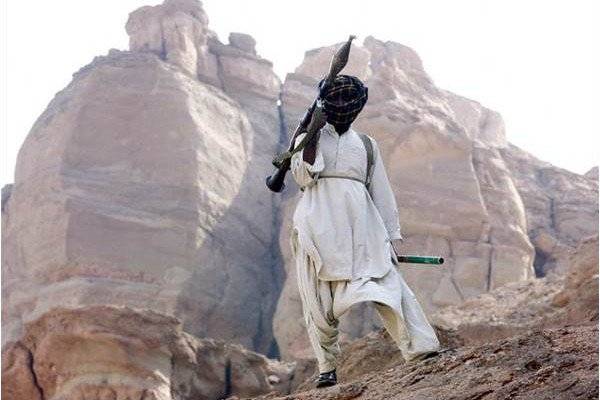After World War II when nation states started emerging and many colonies threw the yoke of colonialism off, it wasn't entirely because of the ''indigenous'' struggles or people's movements on the ground but the fact that colonial powers had realised a people cannot be ruled or governed without their consent. Gone were the days when the natural and human resources of Third World countries could be exploited to fill the coffers of the Empire and people were largely growing more aware of their rights and developing aspirations to be ruled by themselves.
What we also need to understand is that the colonial powers themselves had also evolved to realize that good governance of manageable united provinces and states was far more peaceful and successful than an Empire encompassing diverse cultures and linguistically different ethnic groups. Since then it has been a continued experiment of democracy, governance, what works and what doesn't work in economic policies and social reforms. So in every modern nation state, there will be individuals fighting for equal rights, good governance, development, and general economic stability. It is also true that even though the colonial powers may have left the subcontinent comprising of India, the newly created Pakistan and Bangladesh and the ever unstable Afghanistan, the powers that took over were not always secular, liberal or devoid of corruption. Many quasi-royals and copy cat colonials took over the reins of governments with the power of their rhetoric and sleazy politics.
What is happening in Kashmir and subsequently in Balochistan can be traced to the very neglect, incumbency, highhandedness, misuse of democracy, exploitation of the disconnect of people from power structures and the class divide. What are deemed as indigenous freedom movements are basically people's demand to see themselves worthy of being governed well by trusted leaders for the development of their communities. With the advent of technology, rising literacy rates, receding cultural regressiveness, fast receding superstitious beliefs, and increasing awareness of geopolitics, all the developing countries after World War II in the subcontinent would have eventually tested their constitutions and the work-in-progress-democracies. But for the one main factor – the paranoid politics of the newly formed Pakistan government and intelligentsia.
India became an eternal enemy and Afghanistan a battleground to test its theocratic constitution, and the new nation adopted the concept of Ghazwa-e-Hind in its Salafi-imperialistic-agenda. Because of this Kashmir Valley exploded in 1989; Balochistan was slowly bled to death and its people repressed; Pakistan administered Kashmir remained underdeveloped and its demography changed deliberately; Bangladesh was first alienated and disinherited and finally pillaged, marauded and looted which resulted in its birth. Afghanistan is a much larger, deeper and painful story to express here.
A nation based on the premise of a religious belief – unprecedented in history – was bound to struggle. But like I always say a lot of water has passed under the bridge and new generations are poised for a new era in which the sins and errors of the forefathers are seen for what they were. Also, there is a growing disenchantment with the old foreign policies as well as age-old rhetoric and aimless military spending. Hence you have secular, liberal, politically determined Pakistanis, young and old armed with new thinking, out-of-the-box-solutions for a new geopolitics to emerge in the subcontinent risking their lives for a new Pakistan.
The onus is really on them to subvert the military-politician-mullah nexus of Pakistan and take the reins of the country into their own hands which can result in a secular constitution and a more democratic government. The consequences of this new stability cannot be ignored – the economic progress, the sustainable development, the trade and cultural relations among the countries based on mutual trust and cooperation is too priceless a dream to be dismissed. In India, the rising fascism too is finding resistance at an unprecedented scale, but compared to Pakistan it is easy because of the secular and democratically strong foundations inbuilt in its constitution and institutions.
Kashmir too has its grievances since its accession to India. It was taken over by quasi-royals amidst dynastic politics and like India, it too suffered from incumbency, corruption, nepotism and imported jihadism from across. It would have eventually fought India on its own grounds, with its own people, through its own thinking/methods and leaders whether corrupt or stalwart – but for the ''gun'' entering the relationship. This not only changed the dynamics of the equation of Kashmiris with India but also enabled the ethnic cleansing of the indigenous Kashmiri Pandits in 1990, thus losing moral ground about any freedom movement demanding rights.
All people have grievances from their governments be it a First World nation or Third. There are proper means to address, fight, demand and redress those grievances. Violence can never be a means to an end. It takes away from the victim and gives more justification to the oppressor. Bringing a gun to the negotiating table was a mistake and it only ended up killing our own people never mind who pulled the trigger. A bullet doesn't differentiate and guns have a knack of ending up in the hands of sadistic, perverted and most intellectually challenged of all people who always give in to that base instinct in us- of exploiting fellow citizens with the use of power, fear, terror, and coercion be they state or non-state actors.
That is what is happening in Kashmir and Balochistan both. The jihadi factories have to close and a more secular constitution has to be adopted, or we will forever be entangled in this regional war and paradise will never be regained.






